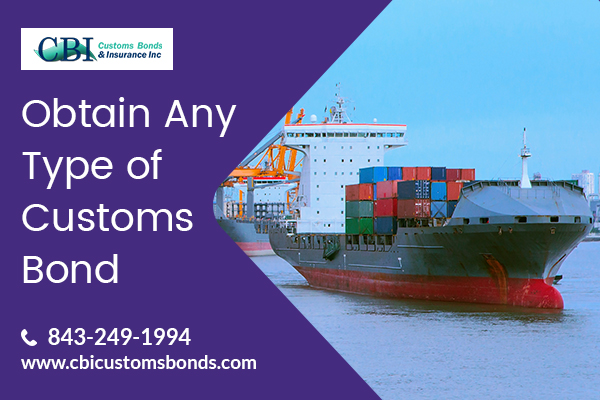During the process of importing merchandise into the US, customs surety bond plays a vital role.
It is the backbone of making it legitimate and secure to clear customs entry. Customs bonds CA are
kind of guarantee between the US government and importers that any revenue
owing, taxes and fees will be paid by the importer whenever a claim is made or
asked by the government for payment. In simple terms, bonds are a contract
between three parties the bondholder (importer), insurance company/broker, and
government (Customs and Border Protection or CBP).
For starters, it may be difficult to understand the
intricate details, changes in policies, and encounter the volatile duties that
are being levied by the US government on goods that are coming from foreign
countries like China. However, you may get over this trade war as an individual
but for companies, it is still tricky unless they appoint expert custom
brokers, freight forwarders, and OTIs. So here in this article, you will learn
the five important things about a customs
surety bond.
1 - What are custom bonds?
As I already have thrown some light on the topic, customs
bonds are simply a contract between importer, CBP, and insurance firm. They
are necessary documents for commercial import of goods that are valued above
$2,500.
2 - When do I need one?
With a customs surety bond, you ensure incumbent CBP
officers and government that all duties, taxes, and fees associated with the
shipment will be paid timely to the government. These bonds are mandatory when
you’re importing goods into the US. For warehouse operators who tend to store
imported products are also required to obtain customs bonds.
3 - Type of bonds
There are mainly two types of bonds when you plan to import
through ocean vessels – Single Entry Bond and Continuous Customs Bond.
4 – Renewal
Single entry bonds only cover the one-time transaction of
goods and must be filled at a specific port where the entry tends to be made
final. It can’t be renewed and importers have to purchase a new one each time
they import. On the other hand, continuous
customs bond are cost-effective solutions that you only have to purchase
for multiple transactions in a year. It remains active until the bondholder
terminates it and automatically renews every year. Importers need to pay
sureties or broker who write the bond on a yearly bases.
5 - Costs
The cost of a single transaction bond is defined by the CBP
after assessing the merchandise. For continuous bonds, the minimum bond amount
is usually $50,000 or 10% of duties and taxes paid by the importer in previous
years. You can purchase a bond with the help of licensed freight forwarders or
brokers at appropriate prices. Remember, you don’t have to pay the total bond
amount but a few percentages of it as upfront.




Comments
Post a Comment